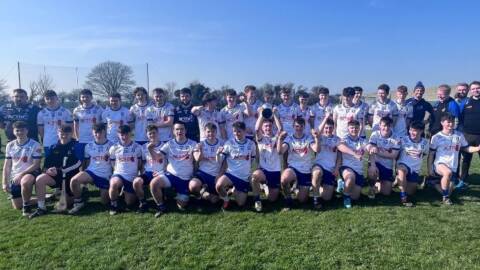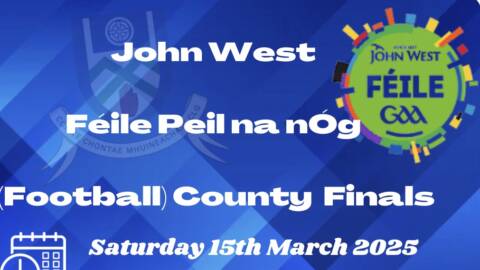As an exercise it was the first of its kind in the GAA where all parties that are relevant to the staging of the club championship matches came together, club officials, team managers and local referee, to discuss the variety of issues that will arise during the club championships and to give people a better understanding as to how matters regarding the playing rules, especially, are decided on and decisions applied. The venture was the brainchild of the chairman of the Monaghan Referees Committee, Martin McNally, himself an inter-county referee and it got the full support of the Referees committee, the championship coordinating committee and the Management Committee of the County Board. The speakers on the night were senior inter-county referee David Coldrick, Meath, Oisin McConville, former player with Armagh and Crossmaglen and DK IT team manager and Clontibret and Monaghan’s Conor McManus. The main speaker on the night was David Coldrick, and in a very informative presentation where he used clips from games to illustrate the main aspects of the referees role and function on the day, highlighting in particular the preparation referees need to make for games, the handling of difficult situations, the interpretation of rough as opposed to dangerous play and using these examples to get a perspective from a team managers point of view and the players point of view, although questions and comments on some of the clips that were shown did illustrate the differences there can be in interpretation. He used clips from various matches to illustrate the rules regarding kick outs, where various fouls can be committed and how important it was to define whether the foul was deliberate or accidental, concentrating on judgement calls by the referee. On play itself, that same judgement was needed to determine whether incidents are rough play or dangerous play and the penalties they incur, stressing how important it was that there was communication between the referee and his officials but also communication with the players. He stressed too how important it was that referees are mentally fit as they will need to be resilient due to the pressure that are on referees during games, but did admit that referees do not get all the decisions right, although he advised strongly that the referees in the audience should not rush into quick decisions. Regarding difficult situations, he advised that the referee should stand back and observe what was happening, particularly when melees develop and he stressed the need again for clear communications with umpires and linesman and concluded with the assertion that exercises such as this pre-championship seminar can only help all concerned to a better understanding of each other’s role and functions and he hoped that this would not be one-off but that it would be copied in other counties.
Conor McManus spoke on behalf of club players and the players perspective on things, stressing that everyone involved puts so much time and effort into club games. He acknowledged that referees generally appreciate that, but felt that seminars like last Monday night’s can only help to minimise conflict between referees and players. He went on to speak of certain things that frustrate and even infuriate players and felt that the solution is for referees to talk to players during the game, although acknowledging that they do not have an easy task.
Oisin McConville in his address acknowledged that he is hard on referees and that he’s had an on-off relationship with them over the years. He acknowledged though that better communication would certainly help, and pointed out that there seemed to be a difference in how hurlers related to referees during matches as opposed to footballers, but stressed the necessity for everyone involved to acknowledge that referees are going to make mistakes but on the theme running throughout the seminar, that of communication, he felt this was necessary, particularly in explaining technical frees. In conclusion he acknowledged that the seminar can only be beneficial for everyone concerned, particularly the referees and players. In conclusion, the Monaghan referees coordinator, Cormac Connolly spoke of how important it was to introduce best practice for referees, but spoke of respect too being a two-way street and he then, along with the chairman of Monaghan CCC, Austin Corrigan, illustrated a number of regulations that club officials, team managers and players need to be aware of during the championship. He spoke of documenting substitutions properly, of how many officials were allowed in the dugout and stressed that only three team officials are allowed along the side line and that for players warming up, only three substitutes would be allowed along the lane to do this at any time. They also drew attention to the fact that abuse of fourth official’s by players and/or officials in the dugout would not be tolerated and those who will be acting as fourth official will be instructed to report any such incidents of this nature to the referee immediately. Clubs were also informed that match regulations in the championships in 2019 will be that games finish on the day because with the schedule of matches and getting all club competitions nationally finished within the calendar year, there will be no time for replays. At the conclusion those present acknowledged that it had been a very useful exercise and the hope was expressed that it will become a feature of championship preparations on an annual basis.
By Mary McEneaney Fri 2nd Aug






























